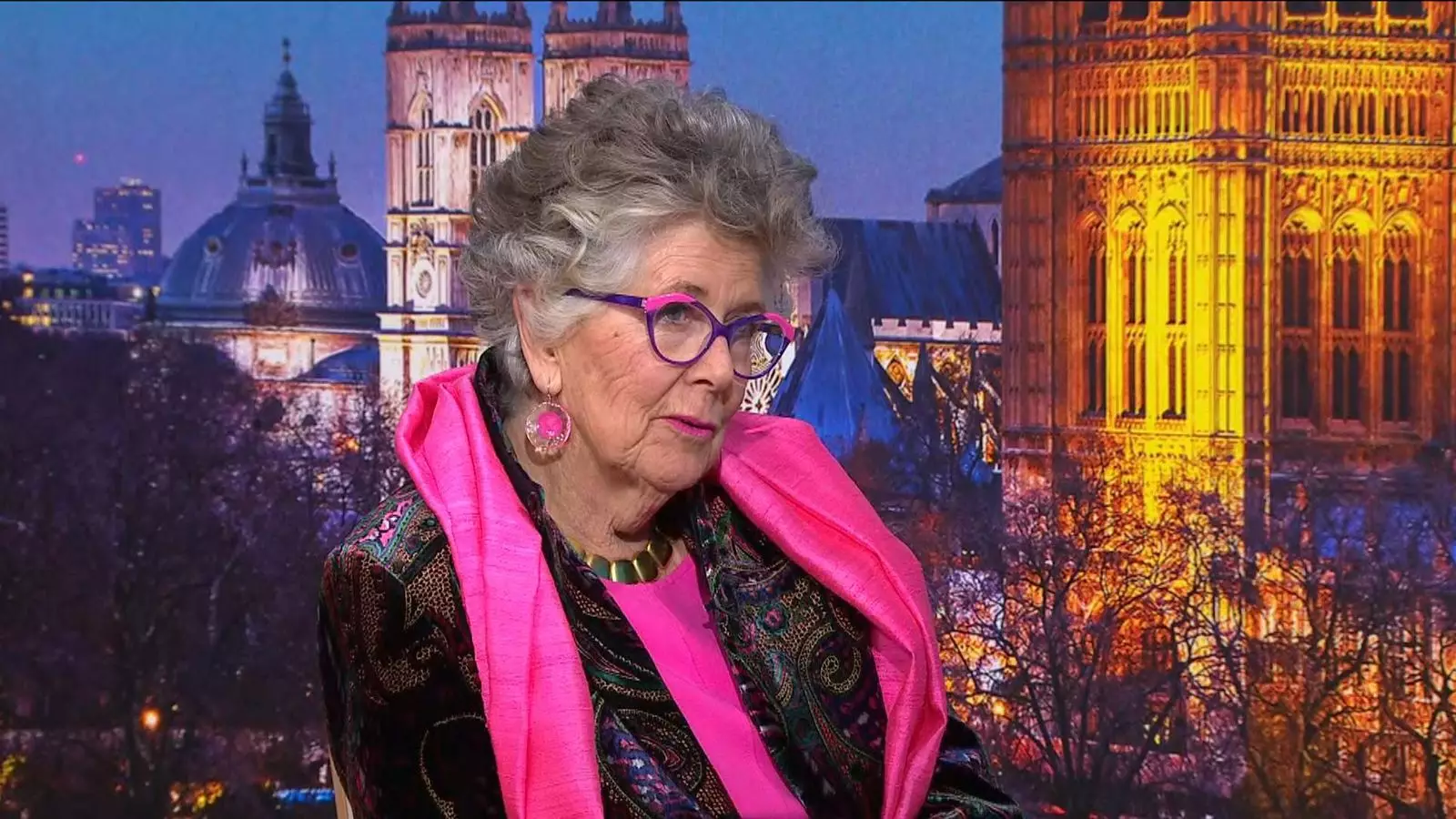The issue of assisted dying has gained significant traction in recent years, igniting discussions that delve deep into the moral and ethical fabric of society. In the center of this debate is Dame Prue Leith, a prominent figure best known for her role on “The Great British Bake Off.” With a heavy heart and a wealth of personal experiences, she lends her voice to advocate for more compassionate legislation regarding assisted dying in England and Wales. Her experiences surrounding the painful death of her brother, David, expose the stark realities faced by many terminally ill patients and their families.
Dame Prue’s stance on assisted dying is undeniably shaped by the anguish she witnessed as her brother battled bone cancer. Describing her brother’s harrowing final days, she highlights the limitations of palliative care—especially the frustrating admin of morphine that would only provide temporary respite. This painful exposure to her brother’s suffering compelled her to confront the inadequacies of current end-of-life options available in the UK. Her perspective emphasizes a critical viewpoint: that those who advocate for stringent regulations on assisted dying may not fully grasp the depth of suffering that terminally ill individuals endure.
In contrast, her son, Danny Kruger, who serves as the shadow work and pensions minister, presents a differing viewpoint. He argues that the UK should focus on enhancing palliative care rather than legalizing assisted dying. This dichotomy illustrates a broader societal divide on the topic, as those who favor only aggressive palliative interventions may not see the full scope of what terminal ailments can entail. Kruger’s position seems idealistic in theory but less comprehensible in the face of real, raw human suffering.
Despite their deep familial bond, the differing opinions between Dame Prue and her son on this critical issue lead to complex conversations. She acknowledges that while they don’t frequently engage in heated discussions about the topic, the underlying tension remains. This speaks to the heart of the matter: that individual experiences dramatically shape beliefs regarding assisted dying. The emotional toll of witnessing a loved one’s suffering cannot be understated, and it becomes clear that policymakers like Kruger may need to confront personal narratives to fully appreciate the depth of this issue.
Dame Prue’s recollections convey a sense of urgency as she implores Members of Parliament (MPs) to consider legal changes permitting assisted dying. She articulates a powerful emotional plea: if patients were treated as pets, they would be afforded dignity through humane euthanasia, reflecting her frustration with the existing legal framework that seems to neglect compassionate choices. This stark comparison begins to unravel the moral paradox faced by those against assisted dying while considering the rights and dignity of individuals in their final moments.
The forthcoming debate on the Terminally Ill Adults (End of Life) Bill represents not only a legal challenge but also a societal call for change. As MPs prepare for a free vote on the proposed legislation, the ghost of debate looms large, characterized by deeply held beliefs on both sides. The bill, if passed, would allow terminally ill adults to seek medical assistance in ending their lives under strict guidelines, touted as having some of the most robust safeguards globally.
However, critics warn of a slippery slope toward “death on demand,” a concern that invokes fears of a system where vulnerable individuals may feel pressured into making such irreversible decisions. Engaging in this dialogue, Dame Prue recognizes that while the law may not be perfect, the status quo is fundamentally flawed for those who suffer intolerably. Such a juxtaposition invites reflection on the balance between protecting the vulnerable and providing compassionate options for those who are terminally ill.
In the complex maze of the assisted dying debate, Dame Prue Leith’s narrative serves as a poignant reminder of the human experience behind legislative proposals. While her son’s vision for a world with enhanced palliative care is noble, the painful reality of those navigating terminal illness requires a broader understanding of choice and dignity. As society moves forward with these discussions, it is essential to ensure that voices from the personal realm of suffering are heard amid the political discourse. Calls for legislative change like those of Dame Prue symbolize a step towards acknowledging the autonomy and heart-wrenching realities that impact countless families across the UK. The future of assisted dying legislation should reflect not only laws but also compassion and understanding toward the deadly struggles faced by individuals at life’s end.



Leave a Reply